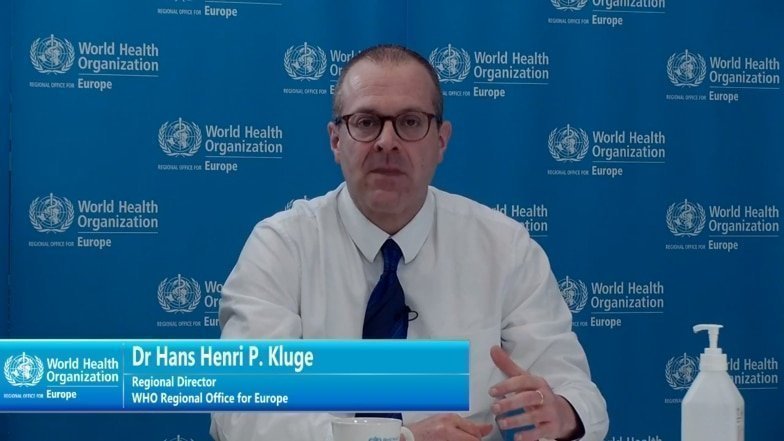By Evie Mitsidou Phillips (CNA)
WHO Regional Director for Europe Hans Kluge has called on everyone to continue to act responsibly as restrictive measures are eased, pointing out that “we all have a role to play to keep COVID-19 at bay.”
“We are now at the fork in the road,” Kluge said addressing a weekly virtual press conference.
This, he noted, “is the point at which our actions and individual behaviour determines which path we follow, one that sees us head towards a new normal, or one that sends us back to restrictions on our movement and social interactions.”
According to the WHO official “emergency fatigue threatens the precious gains we have made against this virus.”
“Reports of distrust in authorities and conspiracy thinking are fueling movements against social and physical distancing. Others are behaving over-cautiously, which continues to limit their social interactions and access to health services, for example,” he added.
“Mistrust, resistance to measures, a disregard for the behavioural changes we have all made to limit COVID-19, will send us down the road none of us want to take,” he warned.
Kluge sent a message to communities to “remain vigilant and protect the gains.” “Our complacency is COVID-19’s playground,” he stressed.
Addressing policy-makers, he asked them “keep attuned to what people are doing – listen, learn and adjust measures accordingly.”
To us all, he continued, “we all have a role to play to keep COVID-19 at bay”.
“Our behaviour determines COVID-19 behaviour,” the head of WHO Europe stressed.
People and local authorities must take measures on beaches
———
Replying to a Cyprus News Agency question on the organisation’s advice about how people can enjoy the sun and the sea this summer as lockdown measures ease, Team Leader of the WHO Health Emergency Programme Dr. Richard Peabody said “off course it very much depends on the extent of the local situation the extent of transmission of COVID-19 and the measures that a particular country has in place.”
There are, Peabody noted, “the core underlying measures that people should undertake”, adding that “those off course relate to the issues of ensuring that the usual physical distancing measures are put in place – the one meter rule – and all the usual measures of hand and respiratory hygiene to help reduce the transmission of the virus.”
And then off course, he continued, “there are the measures which the local authorities need to endeavour to have in place to ensure that beaches and places where people might gather are a safe environment and again to try and minimize any risks of onward transmission.”
On her part, referring to how authorities will be able to deal with people wanting to engage in a social activity which is actually against the recommended behaviour Technical Officer Katrine Habersaat said that “first of all we need to make sure that we listen to the public and understand the fatigue or the barriers that they are facing.” That means, she added, “at some point to also be able to engage in activities that are important for their mental health and wellbeing.”
The other point, she added, “is how can we continue to find ways of appealing to people so that they follow our recommendations and there are many ways of doing that and again from doing surveys we can understand who do people trust, what are their prevailing norms, are there any trends or shifts in norms where we can see that there is a decline in willingness to follow recommendations and if there is we must do something about it.”
Local risk assessment and close interaction with countries where tourists arrive from
—————
Replying to a question by the Hellenic Broadcasting Corporation (ERT) about Greece suggesting that tourists take a test three days before travelling to the country and whether this is considered an appropriate way to protect visitors and residents, Peabody said that this “is a question which is arising in a number of different countries as we move into the summer season and quite rightly countries are wondering about their summer vacations.”
Clearly, he noted, “this really needs to be undertaken involving a very careful risk assessment by the countries involved, involving understanding what the local transmission is and also close interaction with the countries where tourists are going to be arriving from.”
So, Peabody added, “no clear answer here.”
“It is really for Greece to consider where the tourists are coming from, a local risk assessment and based on that make decisions and help to support the local economy which off course is really important.”
(CNA)






